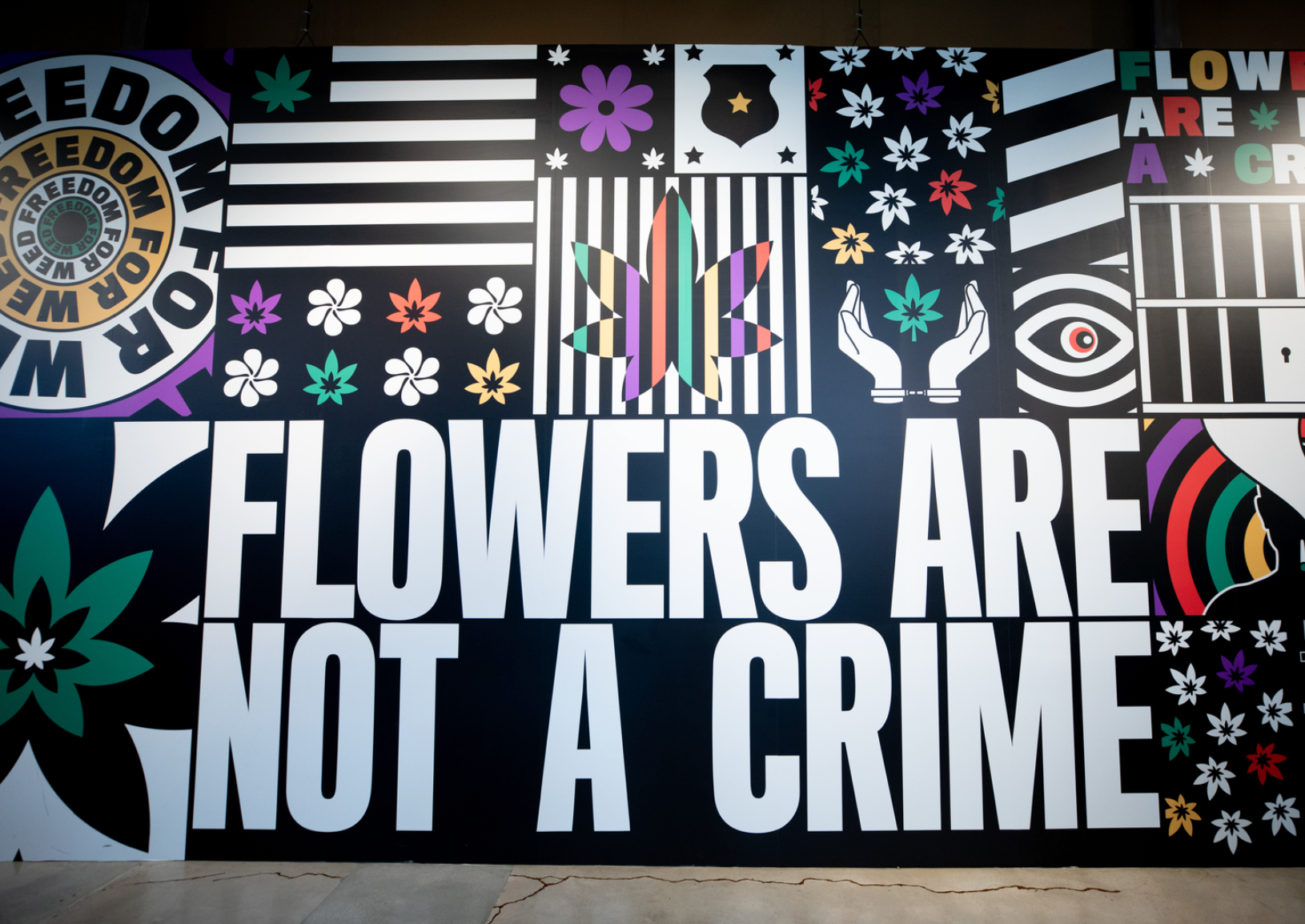
How Three Acts Weaponized Cannabis Against Black Americans
In the United States, cannabis has long been more than just a plant. It has been a tool, a weapon, and a source of contention, particularly within Black communities. This blog post examines the complex history of cannabis, highlighting how it has been used as a weapon against Black Americans across three significant acts. Our exploration spans from early legislation to the present-day cannabis industry, shining a light on the deeply rooted racial disparities in cannabis policy and enforcement. Whether you're a social justice advocate, a history buff, or a cannabis enthusiast, this post aims to inform and inspire action towards an equitable future in cannabis policy.
Act 1: The Early Weaponization - Pre-20th Century
The story of cannabis in America begins long before the 20th century. Initially, cannabis was seen as a harmless plant used for medicinal purposes and recreational enjoyment. However, as the social landscape shifted, so did the perception of cannabis. In the late 19th and early 20th centuries, racial tensions were on the rise, and lawmakers found a convenient scapegoat in cannabis, shifting blame onto minority communities, particularly Black Americans.
Henry Anslinger, one of the earliest proponents of cannabis criminalization, played a crucial role in racializing drug policy. Appointed as the first commissioner of the Federal Bureau of Narcotics in 1930, Anslinger exploited racial fears and prejudices to gain support for cannabis prohibition. He famously linked cannabis use to violence, suggesting that it incited madness and criminal behavior, particularly among African Americans and Mexican immigrants. His racially charged rhetoric was instrumental in the passage of the Marihuana Tax Act of 1937, which effectively outlawed cannabis.
This early weaponization of cannabis set the stage for decades of racially biased drug policy. Black Americans became disproportionately targeted, arrested, and incarcerated for cannabis-related offenses, laying a foundation of systemic inequality that persists to this day. These early laws were not just about controlling a substance; they were about controlling communities, reinforcing racial hierarchies, and perpetuating discrimination under the guise of public safety.
Act 2: The War on Drugs - 20th Century
Fast forward to the mid-20th century, and the War on Drugs intensified the racial disparities in cannabis enforcement. Introduced by President Richard Nixon in the 1970s, the War on Drugs was ostensibly aimed at curbing drug abuse. In reality, it further entrenched systemic racism, disproportionately affecting Black communities.
Nixon's administration capitalized on the fears stoked by previous decades of propaganda, equating drug use with societal decay. Rather than addressing the root causes of addiction and crime, the administration chose to criminalize them. The result was a surge in arrests and incarcerations for non-violent drug offenses, with Black Americans bearing the brunt of this aggressive policy.
Throughout the 1980s and 1990s, the War on Drugs reached its peak. Mandatory minimum sentencing laws and three-strikes policies led to disproportionately harsh penalties for Black individuals caught with even small amounts of cannabis. The impact was devastating, tearing apart families, destabilizing communities, and perpetuating cycles of poverty and disadvantage.
Despite evidence of similar rates of cannabis use across racial groups, Black Americans were—and still are—more likely to be arrested and convicted for cannabis offenses. These disparities are not merely statistical; they translate into real-world consequences that reverberate across generations, affecting access to education, employment, and housing.
Act 3: The Cannabis Industry Today - A New Frontier or More of the Same?
In recent years, the cannabis landscape has undergone a dramatic transformation. Legalization efforts across the country have given rise to a booming cannabis industry. However, this new frontier has not necessarily translated into equity for Black Americans. Despite the potential for economic opportunity, systemic barriers continue to marginalize Black entrepreneurs and consumers in the legal cannabis market.
Access to capital remains a significant challenge for Black business owners. Due to historical injustices and ongoing discrimination, Black entrepreneurs often struggle to secure funding to start and sustain cannabis businesses. Licensing and regulatory hurdles further exacerbate these challenges, making it difficult for minority-owned businesses to thrive in the industry.
Furthermore, the representation within the cannabis industry remains overwhelmingly white. Black Americans, who have borne the brunt of cannabis criminalization, find themselves excluded from the economic benefits of legalization. This discrepancy highlights the ongoing need for deliberate efforts to address racial disparities and ensure equitable access to opportunities within the industry.
Despite the progress made, the fight for cannabis equity is far from over. Advocates are calling for policies that prioritize social equity, expunge past convictions, and provide support for minority-owned businesses. The challenge lies in dismantling the systemic barriers that persist and creating a truly inclusive industry that reflects the diversity of its consumers.
Empowering Change: Building a Fair and Inclusive Cannabis Future
The weaponization of cannabis against Black Americans is a story of systemic injustice, rooted in racial prejudice and perpetuated through policy and practice. From the early 20th century's racially charged rhetoric to the devastating impact of the War on Drugs, Black communities have disproportionately suffered under cannabis criminalization. Today, as the legal cannabis industry emerges, the legacy of these inequities continues to shape the landscape.
Addressing these disparities requires collective action and a commitment to change. By advocating for policies that promote social equity and support minority-owned businesses, we can begin to rectify the historical injustices of cannabis prohibition. Together, we can build a future where cannabis is a source of opportunity and empowerment for all.
Additionally, the North Carolina Healthy Alternatives Association offers resources and opportunities to join the movement for a fair and inclusive cannabis future. Your involvement can help change the trajectory of cannabis history for the better.
Sources / Further Reading
WeedMaps: 'These Acts Weaponized Weed Against Black Americans'
TIME: 'The Surprising Link Between U.S. Marijuana Law and the History of Immigration'
Human Rights Watch: 'Targeting Blacks: Drug Law Enforcement and Race in the United States'
Harper's Magazine: 'Legalize it All'
Schaffer Library of Drug Policy: 'Full Text of the Marihuana tax Act as Passed in 1937'
Pew Research Center: 'Four-In-Ten U.S. Drug Arrests in 2018 Were for Marijuana Offenses - Mostly Possession'
Curbed: 'Public Housing Tenants Still Face Stiff Penalties for Pot, Even in States Where it's Legal'
The New York Times: 'The Injustice of Marijuana Arrests'
Share

